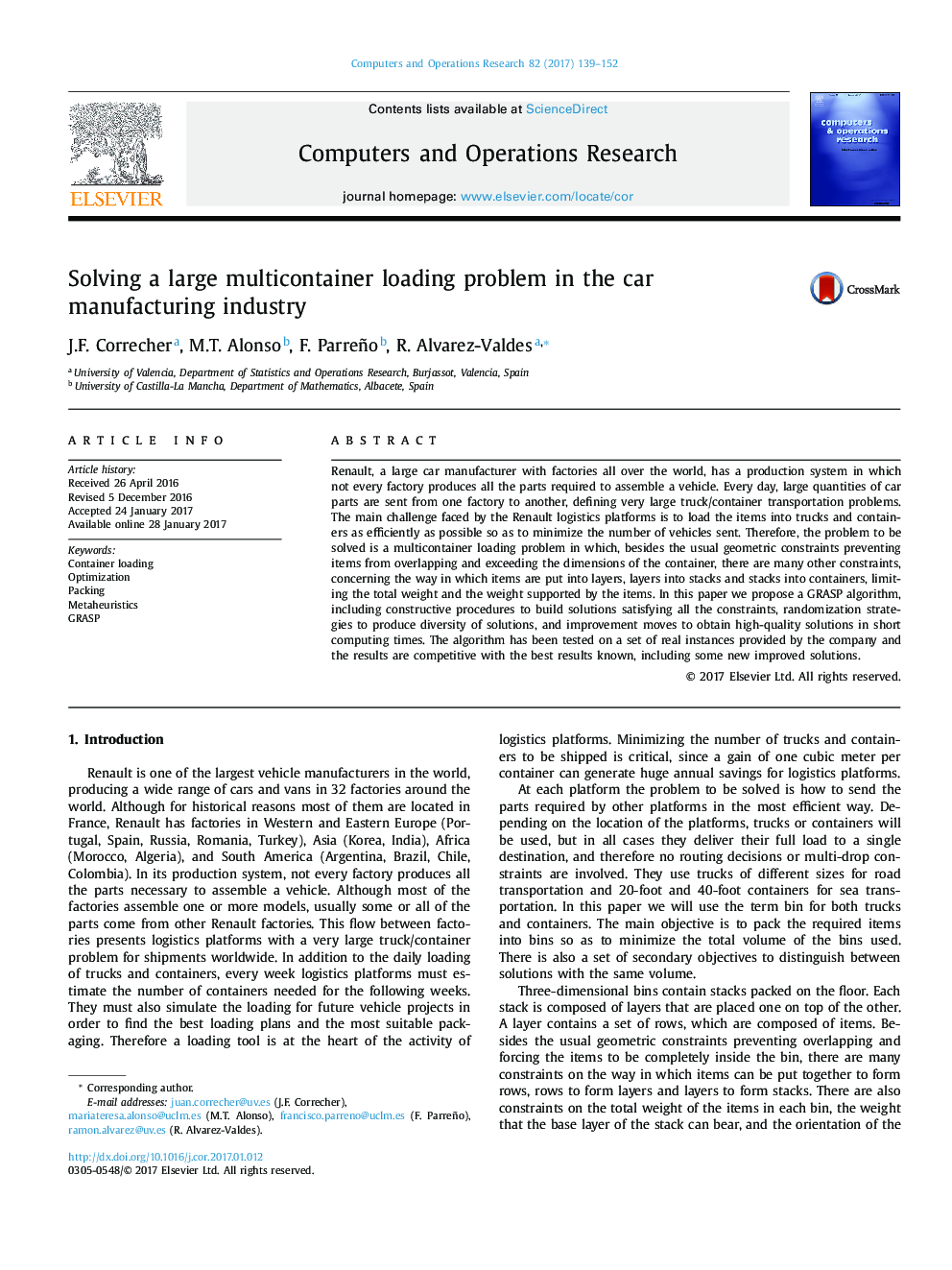| Article ID | Journal | Published Year | Pages | File Type |
|---|---|---|---|---|
| 4959035 | Computers & Operations Research | 2017 | 14 Pages |
Abstract
Renault, a large car manufacturer with factories all over the world, has a production system in which not every factory produces all the parts required to assemble a vehicle. Every day, large quantities of car parts are sent from one factory to another, defining very large truck/container transportation problems. The main challenge faced by the Renault logistics platforms is to load the items into trucks and containers as efficiently as possible so as to minimize the number of vehicles sent. Therefore, the problem to be solved is a multicontainer loading problem in which, besides the usual geometric constraints preventing items from overlapping and exceeding the dimensions of the container, there are many other constraints, concerning the way in which items are put into layers, layers into stacks and stacks into containers, limiting the total weight and the weight supported by the items. In this paper we propose a GRASP algorithm, including constructive procedures to build solutions satisfying all the constraints, randomization strategies to produce diversity of solutions, and improvement moves to obtain high-quality solutions in short computing times. The algorithm has been tested on a set of real instances provided by the company and the results are competitive with the best results known, including some new improved solutions.
Related Topics
Physical Sciences and Engineering
Computer Science
Computer Science (General)
Authors
J.F. Correcher, M.T. Alonso, F. Parreño, R. Alvarez-Valdes,
